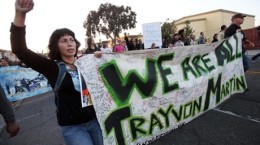Facebook’s founder Mark Zuckerberg has had to first live down an unflattering film portrayal, (something akin to Steve Martin’s lead character in “The Jerk”), and then overcome investor skepticism regarding a bumpy IPO (initial public offering.) To many, the hoodie appeared to only confirm their assumption of a cocky kid who lacked consideration for his investors or for the millions of social network’s users, community who entrusted him with their communications. Some mused that it was only a matter of time before Zuckerberg would collapse under some excess personal or corporate. Some skeptics still cling to outdated images and cliches. But then something has happened in the decade since Mark dropped out of Harvard and Facebook fell dangerously close to irreversibly losing investor confidence. Perhaps the transformation of Facebook from clumsy IPO to top 10 stock by market capital has followed the metamorphosis of its founder, or is it simply of a boy growing over that decade into a global citizen?
Connecting the Global Citizen as well as Next-Door Neighbors
Facebook even to this day is critiqued by some presumably seasoned financial experts for “losing the most desirable demographic, the teens, to other “web platforms.” Most of this investor skepticism though comes from middle-aged money managers who have little personal experience but have allowed cliches to cloud their investment judgment. Facebook is not so much about fickle teens posting temperamental communications or risque photos to a smaller circle of friends, at least not so much anymore. Rather, the social network has evolved into large groups where people from diverse demographics and geography come together as online communities, global town halls. Some of these communities could be gatherings of emotive sports fans, gleeful followers of music’s big and rising artists, or adoring pet-lovers. The communities though have also evolved around causes and concerns, bringing together the casual or more committed around such a variety of issues from animal welfare to human rights, climate change to culture, investing to investing in education. The communities, or groups, have their own administrators, thought leaders and activists. I see this as an evolution into a more local or global town hall. The group could be localized with a few dozen members or integrating thousands, perhaps millions of persons around the world. It is perhaps the next evolution or revolution in democracy. Without the social network, indeed the term global citizen may have been retarded in its development. As critically, the definition and functionality of “global citizen” continues to be more dynamic rather than static.
“Socially Responsible Entrepreneurship”
Google came out with the slogan of “do no evil,” a notion consistent with socially responsible entrepreneurship capturing the rhetoric if not always the reality. From George Soros and Richard Branson, to Warren Buffet and the Gates Foundation, socially worthy objectives are being funded by foundations established as largely not-for-profit. These leaders have been emulated and at times joined by entrepreneurs and the wealthy from some emerging markets, from China’s new billionaires to Middle East oil magnates to telecom monopolists, (a century after the rise of America’s tycoon class, Carnegie, Rockefeller or Ford.) Today, it is less robber-baron and more innovator and entrepreneur who is presumably guided by the notion of social responsibility. Facebook has joined some other Silicon Valley enterprises in making its contributions of resources and employees’ time to local and global causes considered worthy, (something that Salesforce has spearheaded in the San Francisco area.)
Free Marketplace of Ideas
Facebook has also committed to providing connectivity for all global citizens and the infrastructure necessary to connect to the Internet. Some have been skeptical or even critical that this is a self-serving initiative and not so much motivated by altruism. Facebook as a public for-profit enterprise has a primary responsibility to its shareholders of whom Zuckerberg is only one even if the most significant by number of shares owned and related responsibility within the corporation. While Facebook is not a philanthropic institution, nonetheless profit and doing good may not be inconsistent. Facebook has been questioned on various tactics from “profiling” users for purposes of advertising to apparent “experiments” in manipulating its members for presumably further study. Undoubtedly, Facebook has spearheaded new, targeted and more effective forms of advertising, particularly “native content.” (where the user is both intended target audience but also disseminates.) Facebook though has also seen itself as a defender of the public interest, freedom of expression as well as protector of its users privacy in the face of ever greater intrusion by government authority. While “haters” as well as apologists or even recruiters for terror have sought to employ social media, the utility of Facebook, Twitter, Google+ and overwhelmingly such platforms is to further the free marketplace of ideas – that better ideas, just as technology, will prevail is a fundamental belief of the free society. While Donald Trump has pursued exclusionary politics and targeted Zuckerberg with some of his vitriolic, Mark has continued to promote an inclusive image and welcome among Facebook’s user base.
Beyond ideas and free speech which in itself may raise vigorous debate, social media also brings into the main stream various segments of society that may have been marginalized until the evolution of the Internet. Religious and/or ethnic minorities, economically disadvantaged, politically ostracized, LGBT community and others considered non-conforming or deviant now have a greater voice which can reach all more directly, and is not always welcome. In societies where women/girls have faced marginalization by dictum of presumed culture or religion, now they have their voices heard and contributing in a much broader manner beyond that defined by tradition. All of this also provokes a counter-response, sometimes reactionary, hateful or perhaps even inciting violence, and it is not limited to any religion, nation or society. (See: “The Decadence of Persecuting Deviance.”) The fear or hate or violence that may be aroused is no reason to silence the voice of non-conformism, perceived deviance, the counter response or the debate as a whole. Specific recruiting for terror or provoking violence may call for a response from law enforcement and counter-terror. The most recent decision by the US government to establish a counter terror task force in cooperation with and focused on the Web and social media is welcome to the degree such enhances the debate to counter hate and fear mongers in the free marketplace of ideas. Such though should be rigorously challenged to the degree censorship becomes an indiscriminate landmine within our First Amendment and globally free speech rights. It is the free marketplace of ideas that I understood as having been part of the defense of a multi-ethnic, multi religious and diverse Bosnia & Herzegovina in which I had the opportunity and honor to contribute.
Best means to counter hate or terror incitement is through greater projection of organic voices and not transparently officially orchestrated voices. There is a tendency on the part of all authority to seek to maximize its control as means to counter any perceived real or exaggerated threat. Such could also undermine both business interests and America’s greatest asset in countering both terror and authoritarian regimes, the free market system and enterprises it nurtures as Facebook, see: “In Hunt for ‘Spy Snowden’ is US Losing more than Secrets?” It should also be noted that posting incitement to terror or violence, under whatever political or ideological banner, on a public platform is an open and not private communication that could bring the source to greater and thus preemptive scrutiny. If we are to fear the threat to our safety as well as our freedom, then history teaches that authoritarian regimes seek to silence alternative sources of information, whether Nazi Germany, the Soviet Union, Communist China, or today’s petty despots. Along with Facebook’s main obligation to enhance shareholder profit consistent with a socially responsible enterprise, an altruistic focus may have been not particularly evident. What though if the future was defined by a complementary commitment to both financial sustainability and altruism – not merely a socially responsible enterprise but one defined by social responsibility entrepreneurship?
Social Responsibility Entrepreneurship
The headline was that Mark Zuckerberg and his wife Dr. Priscilla Chan, upon the birth of their daughter and first child, intend to give away in their lifetime, 99% of their fortune. However, the details here are more than footnotes and some began to question the motives of this Silicon Valley power couple. The plan was not to establish a foundation, as Soros’ Open Society or the Gates Foundation but rather an LLC that could engage in investments, garner profits, pay taxes as well as be motivated by altruism. This was not traditional philanthropy, and consequently some questioned the motive.
However, could this be a more needed paradigm change – where the altruistic and financial considerations are balanced in a more thorough evaluation and sustainability also becomes part of the formula. Perhaps it is even a more generous gift, (than just the current estimated $40 or $50 billion mostly based on the now market value of Zuckerberg’s Facebook stock.) The Zuckerberg family may not gain the tax benefits of a charitable contribution. Profits to the new LLC are possible but it will require ongoing management as well as initial evaluation for its viability as a financially viable enterprise. The value of the LLC could grow significantly overtime if managed to enhance returns as well as social responsibility. Of course, this does not mean that the LLC could not give charitable contributions. However, its most significant commitment may be to act as a venture fund, incubator for a new form of enterprise evolving, one that does what Facebook cannot now – place altruism at least on the same or higher priority than financial viability and profit. This could turn out to be Mark Zuckerberg’s and Dr. Priscilla Chan’s greatest benefaction, even beyond the connection that Facebook provides to connecting global citizens. From climate change to countering hunger to promoting arts as diplomacy for peace and enhanced human rights, new visions to effect need to be considered and tried. Facebook has been part of the revolution in communication, (we should not ignore the contributions of messaging apps and virtual reality that are also part of the Facebook portfolio.) The next phase is to translate such as to how we work together, benefit and even prosper from the diversity and turn challenges into opportunity. Mark Zuckerberg and Dr. Priscilla Chan appear to be positioned to lead this next revolution.
For more on Social Responsibility Entrepreneurship –
By, Ambassador @Muhamed Sacirbey



